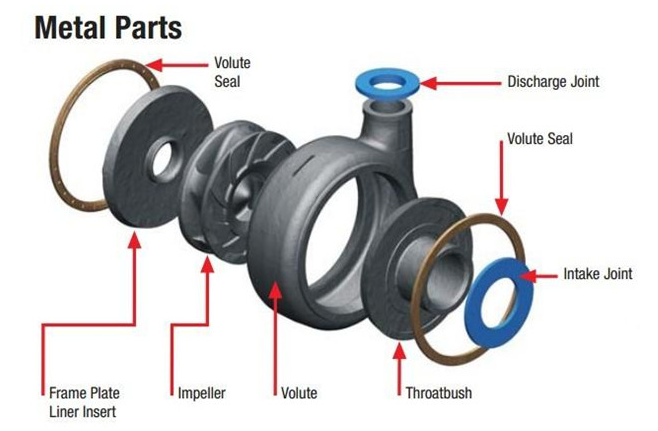Strict fire management
(1) It is forbidden to use naked flames in places with fire and explosion hazards.
(2) It is forbidden to use open fire construction operations during the business hours of public gathering places.
(3) It is forbidden to use open fire in the public entertainment venues and in the auditorium hall.
(4) It is forbidden to use open fire in the warehouse.
(5) It is forbidden to produce and store Class A and B flammable and explosive materials and use liquefied petroleum gas in the basement.
(6) It is forbidden for open fire operators to use open flames for more than the prescribed time and scope.
(7) It is strictly forbidden for naked fire operators to operate without a license or to violate operating procedures.
(8) During the use of open fires in restaurants and other places, the staff must be clearly identified and the care measures must be implemented.
Strict power management
(1) It is forbidden to dismantle the metal distribution box, and it is forbidden to stack combustibles and other debris around the distribution box.
(2) It is forbidden to use twisted wires on electrical lines, and copper core cables or sheathed wires should be used.
(3) It is forbidden to connect the electrical lines by articulation. It should be connected by crimping.
(4) It is forbidden to place mobile sockets, rechargeable batteries, etc. on flammable materials or be covered by flammable materials. It is strictly prohibited to use in series or overload.
(5) It is forbidden to pass the wires directly through the unprotected pipes or to lay them on the flammables. The power equipment such as air conditioners should be supplied with power independently and the wires must be laid separately.
(6) It is forbidden to use high-power electrical appliances (such as electric stoves, electric blankets, electric irons, and heat quickly) in key locations such as business premises, workshops and warehouses.
(7) It is forbidden to install incandescent lamps, tungsten halogen lamps, high-pressure sodium lamps, metal halide lamp light sources, fluorescent high-pressure mercury lamps (including inductance ballasts) and other high-temperature lighting fixtures that are larger than 60 watts.
(8) It is forbidden to exceed the rated power overload to install and use electrical equipment.
Strict gas management
(1) Liquefied petroleum gas cylinders are strictly prohibited from being stored in residential rooms, offices and densely populated public places. It is forbidden to arrange the liquefied gas cylinders with other fire sources in the same room.
(2) An oil-resistant rubber hose connection shall be used between the liquefied petroleum gas cylinder and a single gas cooker. The length shall be controlled between 1.2 m and 2 m , and there shall be no interface.
(3) When multiple gas cookers and gas supply distances exceed 2 meters , a hard pipe connection shall be used.
(4) Liquefied petroleum gas must not be located in a basement, a semi-basement, or a place with poor ventilation.
(5) If the total weight of the gas cylinder exceeds 100 kg , an independent cylinder room shall be provided.
(6) The fire resistance rating of the gas cylinder building shall not be lower than Grade II, and the height shall not be less than 2.2 meters . Ground materials shall be made of sparkproof material, and shall not be connected with the kitchen door, window or hole. And should be set ventilated area should not be less than 300 square centimeters per square meter of ventilated vents.
(7) A fixed flammable gas concentration alarm device shall be set up between gas cylinders. Explosion-proof electrical equipment shall be used. The switch shall be installed outdoors. It shall be equipped with not less than two 8 kg dry powder fire extinguisher.
(8) The gas pipeline shall be clearly located and located away from the heat source. The horizontal distance between the stove front pipe and the gas cooker shall not be less than 0.5 meters , and it shall be strictly prohibited to lay directly on the stove.
The information in this article comes from the Internet and was reorganized and edited by China Rescue Equipment Network.
1. Naipu Pump offers all metal wet parts with high chrome white iron (27% chrome).The high chrome white iron is a very good wear-resistant material and nice wear-resistant is our slurry pumps important character.

2. Metal Slurry Pump Parts material construction
LINERS
IMPELLER
CASING
BASE
EXPELLER
EXPELLER RING
SHAFT SLEEVE
SEALS
Standard
Chrome Alloy
Chrome Alloy
SG Iron
SG Iron
Chrome Alloy
Chrome Alloy
SG Iron
Rubber
Options
Ferralium
Ferralium
SG Iron
MS
NI Resist
NI Resist
EN56C
Ceramic
Natural Rubber
Natural Rubber
or
SG Iron
or
SG Iron
and
Nitrile
Hastelloy C
316 SS
W151
Polyurethane
Neoprene
Butyl
Viton
Nitrile
EPDM
Hypalon
Hastelloy C
316 SS
W151
Polyurethane
Neoprene
Butyl
Nitrile
Hypalon
Various grades
Fabricated
Cast Iron
Ferralium
Hastelloy C
Polyurethane
316 SS
W151
Ferralium
Hastelloy C
316 SS
Rubber
W151
Polyurethane
Neoprene
Butyl
Nitrile
Ferralium
Hastelloy C
Titanium
316 SS
304 SS
Stellite
Chrome Oxide
Nordel
Neoprene
Viton
Pump Parts,Slurry Pump Metal Parts,Metal Slurry Pump Parts,Slurry Pump Fluid Parts,Slurry Pump Wet Parts
Shijiazhuang Naipu Pump Co., Ltd. , https://www.naipu-pump.com
